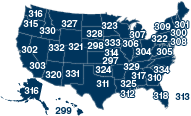The process of negotiations between the NPMHU and the Postal Service over the terms of the 2011 National Agreement has entered the mediation stage of the dispute resolution procedures, as governed by Section 1207(b) of the Postal Reorganization Act (PRA), as amended in 2006.
The mediation is being conducted under the supervision of the Federal Mediation and Conciliation Service (FMCS), which is charged, under Section 1207(b) of the PRA, with appointing the mediator. FMCS Director George Cohen announced in March 2012 that he was appointing Herbert Fishgold as the mediator for the NPMHU/USPS dispute. As required by statute, Mr. Fishgold is “a mediator of nationwide reputation and professional stature, . . . who is also a member of the National Academy of Arbitrators.” Indeed, Mr. Fishgold has served as a third-party neutral for more than 30 years, during which time he has mediated and arbitrated bargaining disputes in a wide range of industries at the national, state, and local levels.
The statute instructs the parties that they “shall cooperate with the mediator in an effort to reach an agreement and shall meet and negotiate in good faith at such times and places that the mediator, in consultation with the parties, shall direct.” The mediation will continue for at least sixty days, unless the parties agree otherwise, either because they have reached a tentative agreement or because they and the mediator believe that an extension of the mediation process would be appropriate.
To this point, Mediator Fishgold has held three meetings with the parties and their representatives. Because he generally is familiar with many of the basic facts and issues presented by the Postal Service, the mailing industry, and postal employees generally – based on, among other things, his service as an interest arbitrator in the 2006 dispute between the National Rural Letter Carriers Association and the Postal Service – Fishgold has been able to jump into the mediation process quickly, without expending a lot of time and effort to familiarize himself with the unique industry that comprises the Postal Service. That also has allowed the mediator and the parties to have frank discussions about their differences, and about possible ideas for narrowing or eliminating those differences. As noted elsewhere in this bulletin, Congressional efforts to preserve and protect the business and the finances of the Postal Service are ongoing, so the mediation process is unlikely to make progress until at least some of these underlying issues are decided.
As a mediator, Fishgold does not have the power to issue binding settlements or resolutions, and thus cannot compel the parties to reach an agreement. Rather, the mediator serves as a facilitator of discussions, making suggestions to the parties in an effort to keep the dialogue and process of negotiations moving forward. Moreover, the parties have agreed that Fishgold is prohibited from serving as the eventual interest arbitrator, should one be necessary, thereby providing another safeguard on the confidentiality of the current discussions.
In addition to the ongoing legislative issues, there are several other factors that also may have a large impact on the mediation. First, the American Postal Workers Union and the Postal Service reached a comprehensive agreement in March 2011, and that agreement has been held out by some as a pattern or a baseline for future negotiations. Second, the National Association of Letter Carriers also had a contract that expired in November 2011, and negotiations over that contract just entered the arbitration stage. Third, the Postal Service and the National Rural Letter Carriers Association are presently engaged in arbitration hearings, which started in December 2011 and are continuing into at least May 2012, and the results of that arbitration could have an effect on any future resolution of the NPMHU-USPS dispute.
If mediation proves unsuccessful, and the parties are otherwise unable to resolve their continuing dispute, the parties will adopt further dispute resolution procedures, which will include binding interest arbitration before an arbitrator or independent decision-maker who will be selected or appointed to that position. That arbitration is likely to take several months to schedule and to implement, so the terms of the 2011 National Agreement may not be known for some time.
To the extent possible during these periods of confidential communications, the National Office will keep all mail handlers informed of developments through the various modes of NPMHU communications, including monthly bulletins and Contract Updates. All members are urged to read these sources of information and the NPMHU website to stay up to date on the latest bargaining, mediation, and arbitration developments, as they occur.
